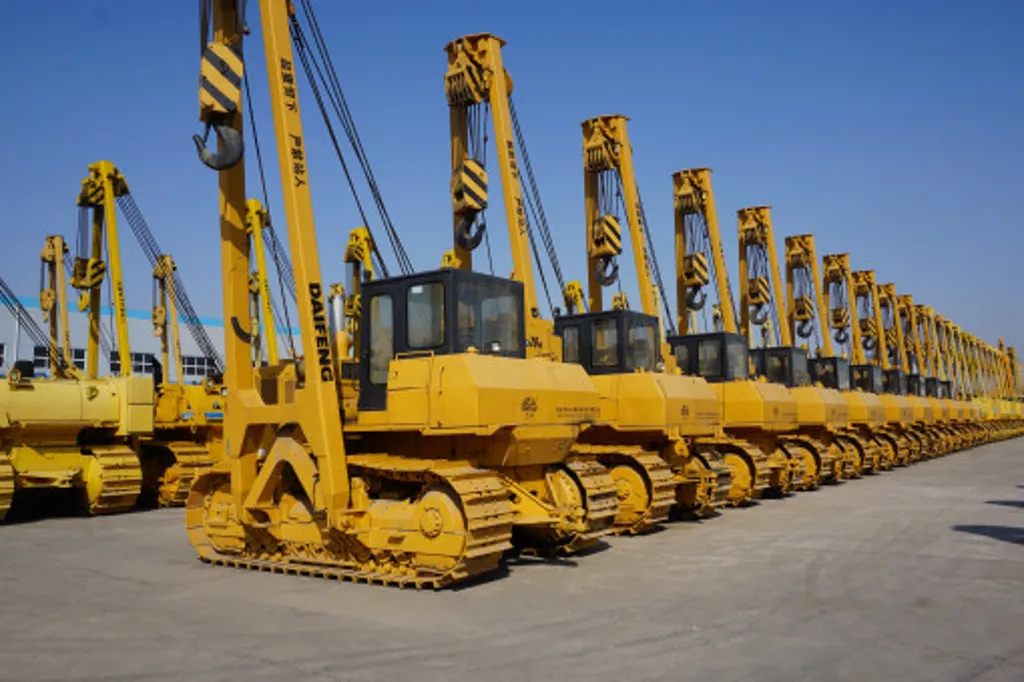Pipelayers: What They Do and How to Get Started in the Field
Pipelayers are an important type of construction worker that specialize in installing pipes and other underground infrastructure. This career can be a great fit for people who are interested in working with their hands, enjoy problem-solving, and are interested in creating the infrastructure that supports society’s critical systems.
Examples of what pipelayers do
There are many different types of pipelaying jobs, ranging from residential construction to public utilities projects. Some examples of jobs that pipelayers might work on include:
– Residential Plumbing: Pipelayers who work in residential plumbing are responsible for installing the pipes that deliver hot and cold water to homes.
– Sewer Systems: Pipelayers who work on sewer systems are responsible for installing the pipes that carry wastewater from homes and businesses to treatment facilities.
– Gas Lines: Pipelayers who work on gas lines are responsible for installing the pipes that deliver natural gas to homes, businesses, and industrial facilities.
Education and Training for Pipelayers
There are many different paths you can take to become a pipelayer. Many people start out working as laborers or apprentices, gaining experience and learning on the job. However, formal education and training may be required for some positions.
Some of the most common education and training options include:
– Vocational Training Programs: Many vocational schools offer courses in pipelaying, as well as related fields like plumbing and HVAC.
– Apprenticeships: If you’re interested in getting started as a pipelayer, an apprenticeship can be a great way to gain on-the-job training and work experience.
– On-the-Job Training: If you’re already working in the construction industry, you may be able to learn pipelaying skills on the job.
How to Progress in the Field
Once you have some experience as a pipelayer, there are several ways you can progress in your career. Some of the most common ways to advance include:
– Specializing in a particular area of pipelaying, such as gas lines or sewer systems.
– Becoming a foreman or supervisor, with responsibility for managing a team of pipelayers.
– Starting your own contracting business, if you have the necessary skills and experience.
Getting Started in the Field
Getting started as a pipelayer can be challenging, especially if you don’t have any experience in the construction industry. However, there are some steps you can take to increase your chances of success:
– Look for entry-level positions: Many companies hire laborers or apprentices with little to no experience, and offer on-the-job training and education opportunities.
– Network with other construction professionals: Joining industry organizations or attending events can be a great way to meet other pipelayers and construction workers, and learn about job opportunities.
– Consider vocational training: Vocational schools or community colleges can provide the education and training you need to get started in the field.
Conclusion
Pipelayers play a critical role in the construction industry, installing the infrastructure that supports our homes, businesses, and communities. Whether you’re starting out as an apprentice or moving up the ranks as a foreman or contractor, a career in pipelaying can be fulfilling and rewarding. With the right education, training, and experience, you can build a successful career as a pipelayer.
Pipelayers: Job Level and Salary Data
| Job Level | Union | Salary (National Average) | |
|---|---|---|---|
| All Workers | Level 05 | Nonunion | $48,110.40/$39,520.00 |
| All Workers | Experienced | N/A | $55,640.00 |
| All levels | Union | Yes | $76,024.00/$63,980.80 |
| All levels | Nonunion | No | $46,363.20/$40,164.80 |
| All levels | Full-time | N/A | $51,230.40/$45,281.60 |
| Level 05 | Full-time | N/A | $48,110.40/$39,520.00 |
| Experienced | Full-time | N/A | $55,640.00 |
| All levels | Time-based pay | N/A | $51,188.80/$45,052.80 |
| All levels | N/A | N/A | $48,110.40/$39,520.00 |
Union Effects: Unionized Pipelayers earn significantly higher salaries than their non-union counterparts, with an average of $76,024.00 for all levels compared to $46,363.20 for non-union workers.
Geography:
- Best Paid: Virginia – Full-time Pipelayers at all levels earn an average of $47,112.00 and experienced workers earn an average of $40,601.60.
- Least Paid: Arkansas – Nonunion Pipelayers at all levels earn an average of $36,504.00 and experienced workers earn an average of $35,547.20.












